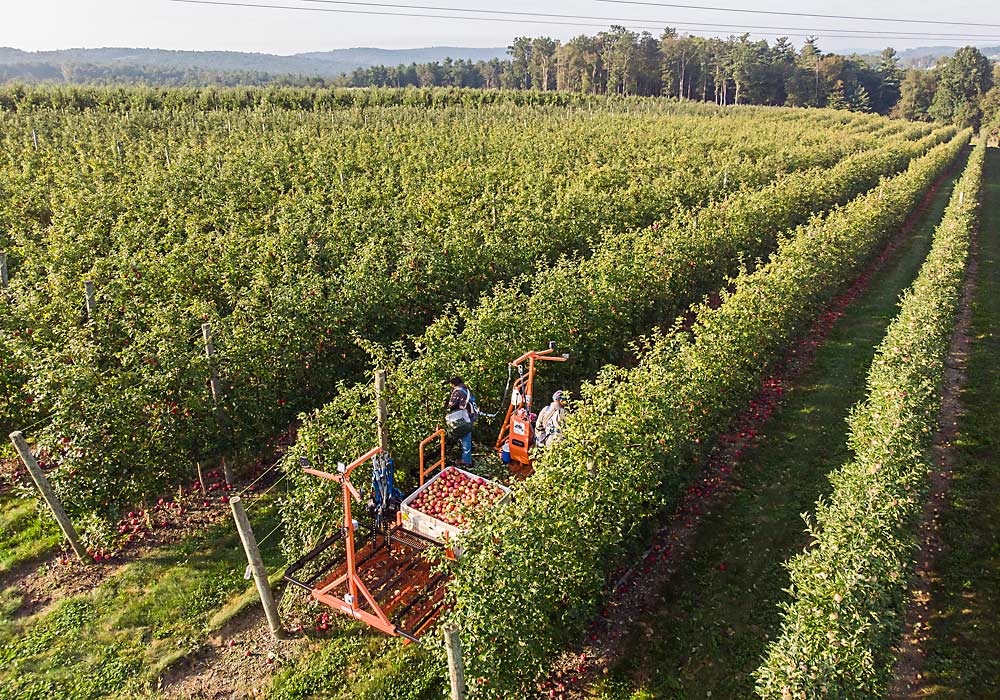
In Pennsylvania, the longstanding tradition of large apple trees planted at lower densities, with fruit intended for processing, is changing, and one of the orchards leading this charge is Mt. Ridge Farms in Adams County, farmed by five generations of the Slaybaugh family.
The Slaybaughs have modernized and mechanized their plantings at a furious pace in the past several years, forever seeking the overarching goals of higher returns, lower production costs, better packouts and improved fruit quality.
Penn State University pomologist Jim Schupp said the Slaybaughs have always been meticulous growers, but they’ve accelerated the pace of change in the past few years.
“The speed and rapidity has been remarkable,” he said.
Mt. Ridge Farms currently grows 650 acres of apples and 50 acres of peaches on plots spread across Adams County. More than half of those apple acres, about 350, now have trees planted at a 3- by 12-foot spacing, or tighter, upheld by trellis systems. It’s a far cry from a decade ago, when there were no trellises and the tightest spacings were maybe 5 by 15 feet, said David Slaybaugh. He called the change a “facelift like no other.”
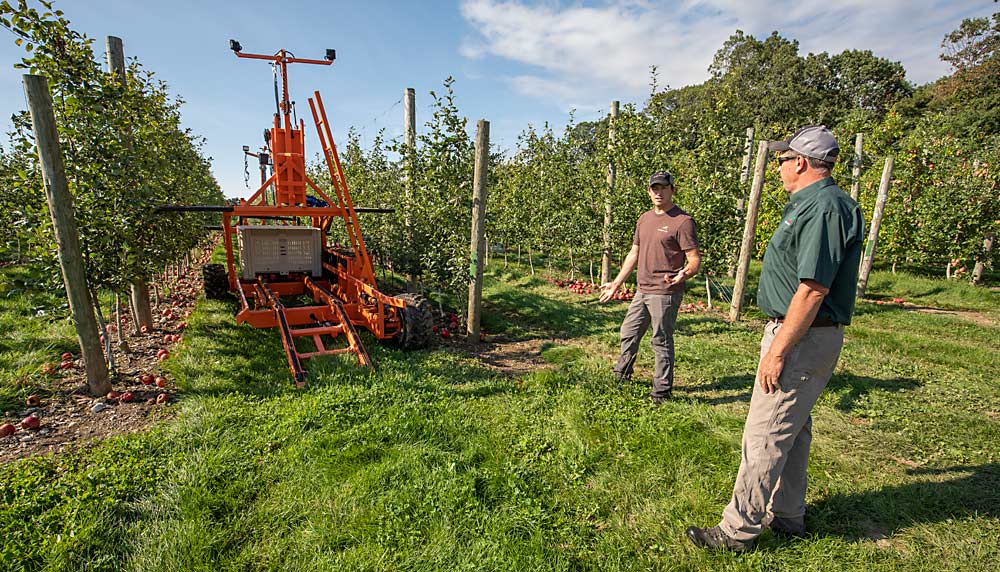
David, 55, is the current president of Mt. Ridge Farms, while son Blake, 27, serves as vice president. David’s father, Steve, 73, remains active on the farm, and his grandfather, Richard, was too — until he died a couple of years ago at age 93. David’s wife, Wendy, and Blake’s wife, Terra, manage the farm office. The farm’s roots go back to 1936, when David’s great-grandfather bought farmland in Adams County, he said.
Schupp said the Slaybaughs also do a good job with farm succession, easing each new generation into a management position.
That’s what they did with Blake. And maybe one day they’ll follow with Blake’s two young sons.
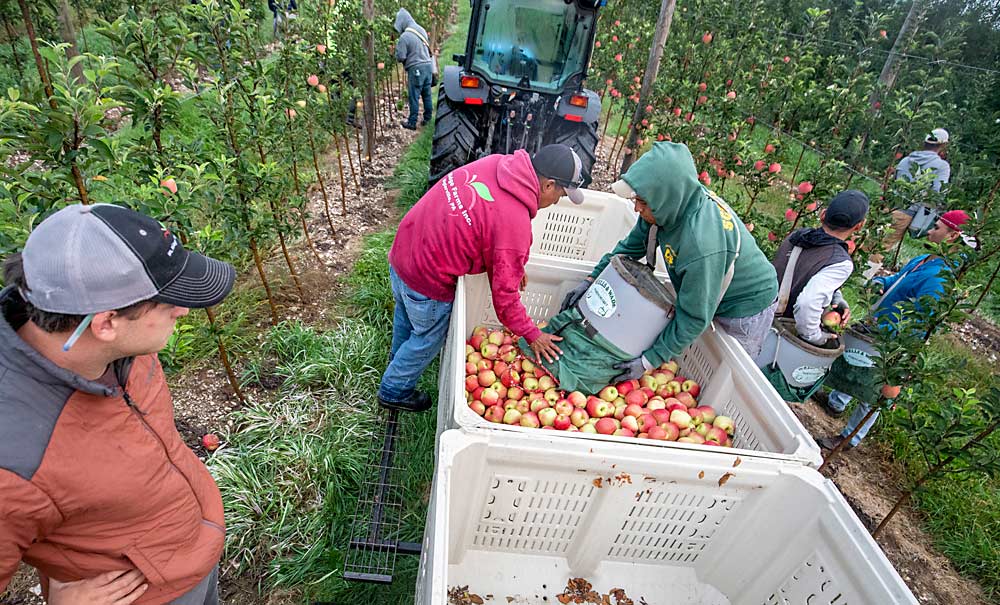
The orchard’s “facelift” began in earnest in 2015, when Blake returned from a yearlong internship with the Washington Tree Fruit Research Commission. When the Slaybaughs decided they wanted to modernize and focus more on fresh-market sales, they sent the next generation to Washington state.
“I wanted Blake to learn from the biggest and the best,” David said.
Through its internship program, the commission endeavors to provide the skills and knowledge participants will need to thrive in the fruit industry. Interns study horticulture techniques and participate in research projects. They also learn how to communicate and to solve problems, said the commission’s executive director, Ines Hanrahan.
Hanrahan was a project manager when Blake was an intern. She visited his family farm for the first time during the International Fruit Tree Association’s tour of Adams County in February. She was impressed with his ease communicating pruning concepts to his audience, and she recognized some of the problem-solving skills he picked up in Washington.
“I want to help every intern meet their full potential,” she said. “It’s nice to see a success story like Blake.”
The IFTA audience only saw a small part of the Slaybaughs’ operation, but they got a glimpse of some of the machines the family uses to mechanize its processes, including a Fama mechanical hedger, an Olmi pneumatic defoliator, a precision tree planter, six Bin Bandit platforms and plenty of tractors, trucks and forklifts. Steve Slaybaugh still handles many of the repairs, along with their full-time mechanic.
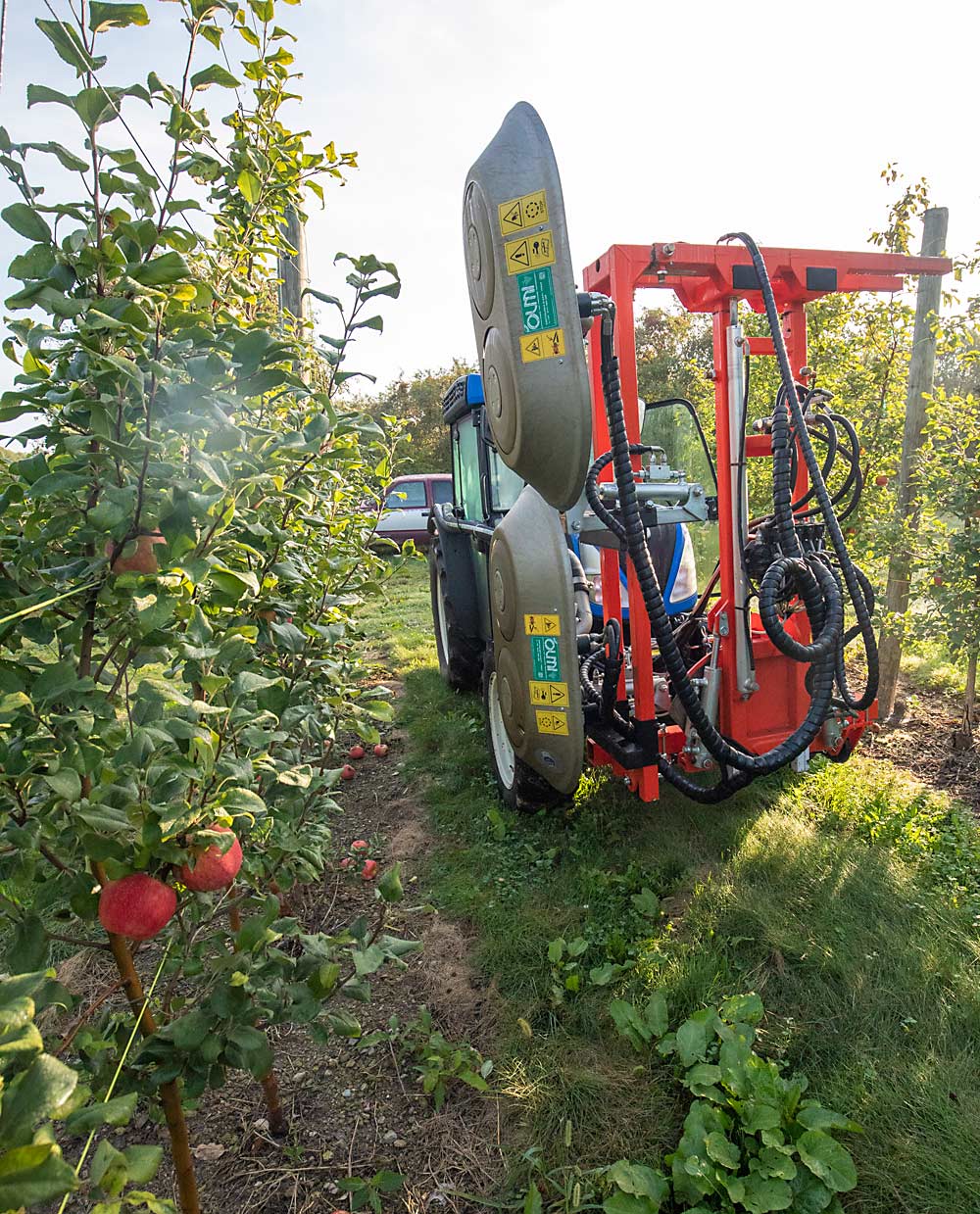
David said the equipment “pays for itself pretty fast.” The platforms alone have reduced their labor costs by at least 30 percent.
“It’s all about trying to save as much on labor as we possibly can,” David said. “Paying someone to go up and down ladders costs a lot of money.”
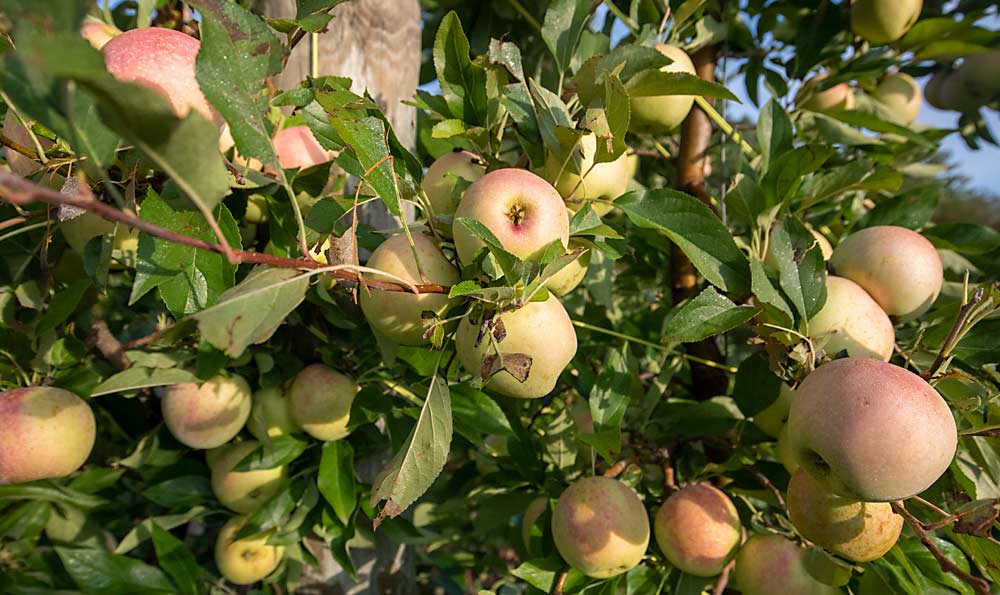
They’re still using ladders in older blocks. Long-term, they aim for all their apple acres to be tighter and trellised, but David is not quite sure when they’ll get there. They planned to plant 60,000 trees at 2- by 10-foot spacing this year but had to downsize the plan due to supply disruptions. Inflation poses another concern, he said.
In a normal year, they sell about 70 percent of their apples fresh, while the rest go to processing. The main variety is Honeycrisp, but they grow dozens of others, David said.
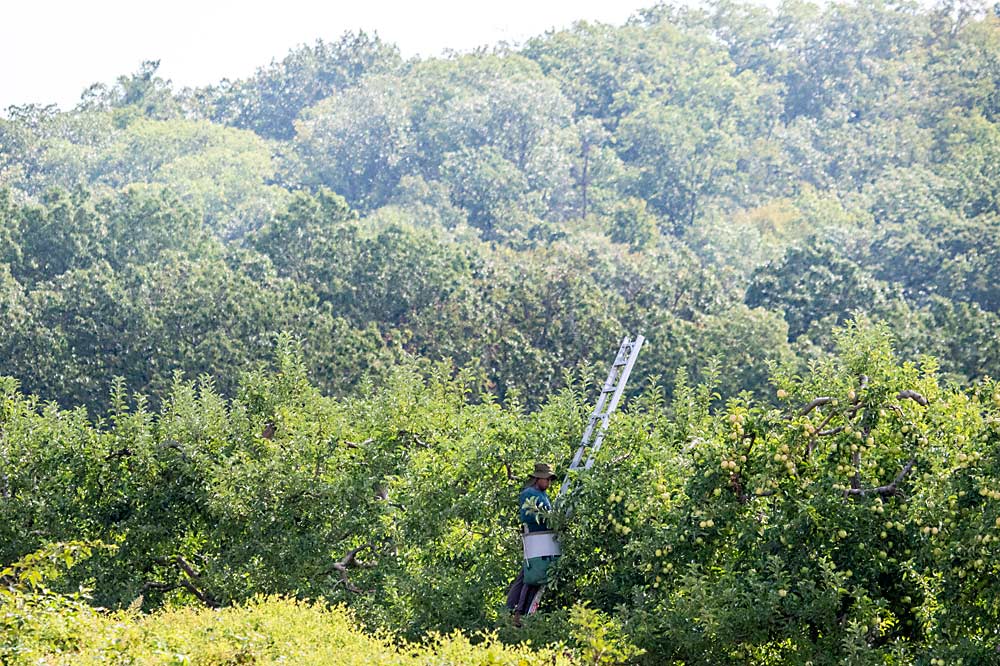
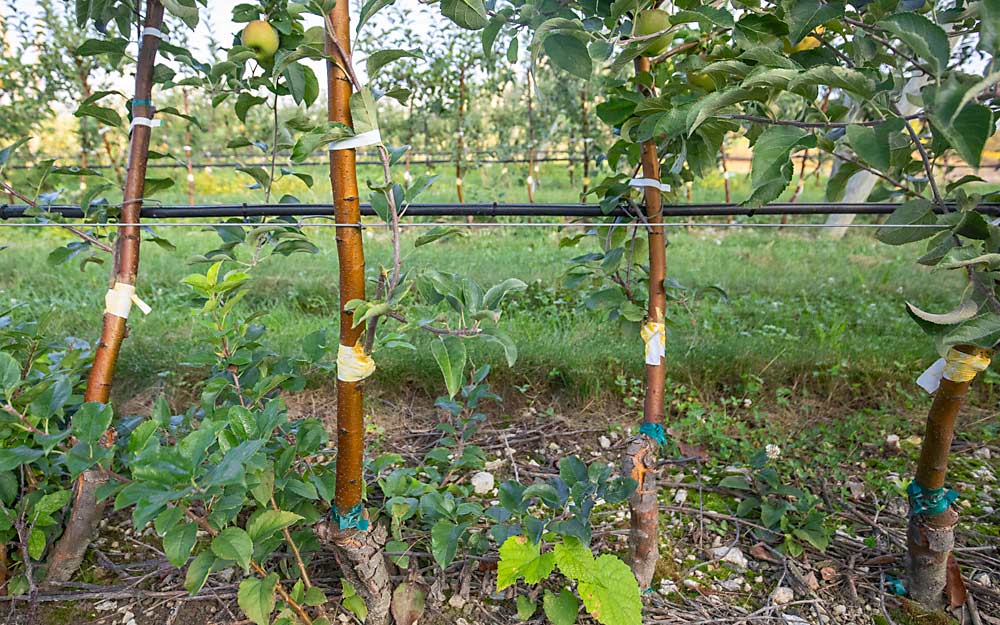
Blake said the farm has multiple sales channels. Most of their apples are trucked out by the bin, but some are sold to local packers and direct marketers. Much of their fruit ends up in metropolitan Philadelphia grocery stores.
Mt. Ridge Farms is noteworthy for another reason: It’s the home of Premier Honeycrisp, the early Honeycrisp sport. Steve Slaybaugh discovered the mutation in 2010, when he noticed a random Honeycrisp tree had ripened three weeks early. The Slaybaughs partnered with Adams County Nursery to propagate Premier Honeycrisp. Plantings have now spread across the country and the world, helping countless growers to extend their Honeycrisp harvest, David said.
The Slaybaughs grow about 90 acres of Premier Honeycrisp themselves. The sport ripens in early August in Adams County, Blake said.
The family started hiring H-2A workers about five years ago, and the farm now relies heavily on them; they currently hire about 60 guest workers for harvest and might go up to 70 soon. They have about 80 workers total, including truck drivers, David said.
“If we weren’t using the H-2A program, we would be out of business,” he said. “Domestic hiring is impossible. I don’t know where we would get labor if not for H-2A.”
They’ve also updated their labor housing, installing new mobile homes for the guest workers, David said.
All the changes in the orchard and farming business in general have led to changes in the office, too. Wendy Slaybaugh said tracking sales, spray, food safety and other records demands more time than it did a decade ago.
Software developer Mike Constantino helped the Slaybaughs streamline some of their record-keeping processes. During the IFTA tour, Constantino demonstrated how the family migrated their spray application and harvest tracking processes from Excel spreadsheets to customizable software that better fits their needs. The new system provides an “enormous amount of information” in report formats, which helps the farm keep more efficient records and stay compliant with regulations, he said.
—by Matt Milkovich

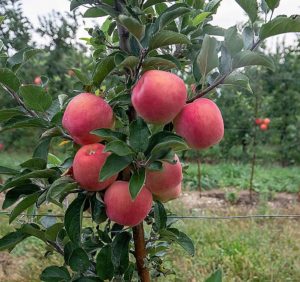

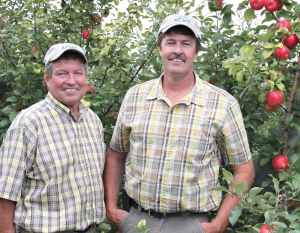





Leave A Comment